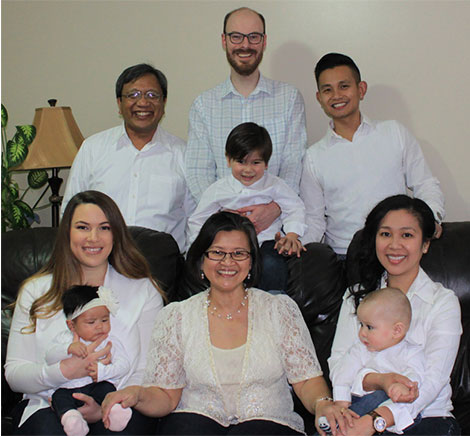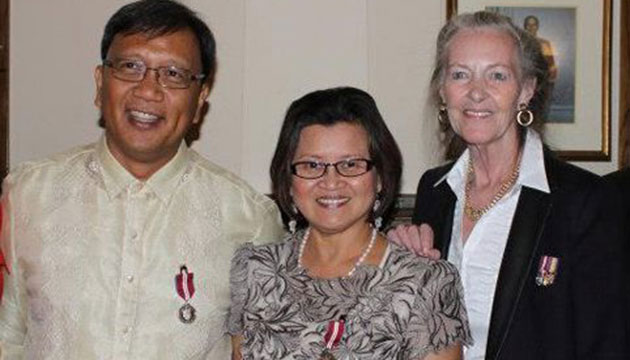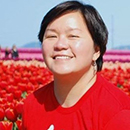Like most immigrants, Marichu Antonio knew that a new life in Canada could mean starting from zero.
She had already established a career in community organizing in the Philippines when the family decided to heed the call from Antonio’s relatives in Alberta to move here. Of the clan, she and her young family were the last to have remained in the Philippines.
But the move was even more bittersweet in that Antonio would have to leave behind not just a career in community organizing but the people and personalities she had helped (and helped her in turn) coming out of the martial law era.
“I was one of the Pangasinan 7 that disappeared for two weeks in October of 1984,” Antonio describes to Canadian Filipino Net (CFNet) a period in modern Filipino history of seven activists that went missing during the resurgence of protests against the Marcos dictatorship in the early 80s.
“People thought we were already dead but in fact, we were brought to a military detachment in Pangasinan where we were tortured.” Antonio was among those seven detained that were subjected to electric shocks and since she was the last in line, pure luck turned in her favour when the machine ran out of juice. The group Pangasinan 7 was detained for almost a year.
Coming out of the martial law era and transitioning in post-EDSA People Power Revolution in 1986, economist and politician Horacio “Boy” Morales tapped Antonio to join Volunteers for Popular Democracy (VPD), a flagship movement of the Corazon Aquino government. “I was in charge of providing technocrats an orientation on what popular democracy was all about,” Antonio shares with CFNet. Her career took off and she eventually held the position of Executive Director for both the VPD and Education for Life Foundation based in the Philippines.
 Marichu Antonio and husband Cesar "Cha" Cala (standing, left) enjoy retirement with family.
Marichu Antonio and husband Cesar "Cha" Cala (standing, left) enjoy retirement with family.
The call from a family in Canada however did not stop. Antonio and her husband Cha Cala decided to give it a try in the mid-90s. Besides, their children were missing their Canada-based cousins.
Antonio realized that the notion of “community organizing” was different in the context of a first-world nation. “When I arrived in Canada, the closest career I could relate to was community development where the focus is on the social worker,” she recalls. She wanted to introduce the idea that community development should be based on empowering people at the grassroots level. She needed a job as the costs of relocating to Canada was piling up.
Antonio eventually found a job as a community development coordinator with the Calgary Mennonite Centre for Newcomers primarily because of her experience in working in partnership with a number of Mennonite groups in the Philippines. The arrangement was temporary as the Centre only had enough funding for a year. But Antonio was determined. “I made the office grow and because of my approach to community development, we began seeing a growth in newcomer clients as well as engagement from the community.” Antonio believed that those who have lived experience are the best to provide real world solutions.
The Centre grew to include services like research work, policy development and advocacy for new immigrants particularly caregivers. A pilot program was initiated. Called “Ethnicity Catering”, the program was a collective community kitchen that not only provided newcomers paid jobs but promoted what they can contribute to Canadian society. Antonio explains, “We were proving something here – those newcomers arrive in Canada already with lived experience and that lived experience translates to valuable contributions to Canadian society.”
The events around 9/11 in 2001 reverberated to as far as Alberta. Racism became rampant since the bombing. As a response, the Ethnocultural Council of Calgary was established the following year. As its Executive Director, Antonio led the centre in grassroots organizing. “Our advocacy was to engage ethnocultural groups to play a complementary role to service provider organizations and be allocated resources on an equitable basis just like mainstream service providers.”
Antonio felt that ethnocultural groups were painfully marginalized and underfunded. She adds, “We wanted ethnocultural community members and groups to have a voice in terms of providing feedback on developing policy proposals, contributing to the progress of society socially, culturally and politically because they have the lived experience.”
Rebranding as Action Dignity in 2017, the centre advocated for racial equity. Antonio shares with CFNet,“Having a voice was not enough, you have to be seen on an equitable footing in order to make an impact.” She describes an immigrant’s journey of integration as taking several steps: 1) society knows you’re there but they don’t invite you; 2) they invite you, but they don’t take you seriously; 3) you get invited, they listen to you but only implement your contributions on a token basis; 4) they finally consider you as an equal.
The COVID-19 pandemic outbreak at the Cargill meat processing plant, where a number of Filipino workers fell ill, highlighted the need for immigrants’ voices to be heard. Action Dignity partnered with other organizations in implementing a service broker strategy: how do you make people heal with dignity and respect? “This is something that can not be done unless you inculcate a sense of respect for our essential workers who are racialized so you ought to care for them the way you care for your family members.” The collaboration produced 20 cultural brokers who answered over 5,000 calls and delivery services of menu packages good for two weeks for families who needed them.
Now retired, Antonio was awarded the 2020 Calgary’s Citizen of the Year Award. The City of Calgary described her as a “pioneering leader with 50 years of experience in community development and advocacy”.
Even at retirement, Antonio vows never to stop the work. “I’m not retiring from the community; the Citizen of the Year award opened opportunities for me to promote and advocate on critical issues,” she reports. “I will never stop having a voice and be involved.”



